Kernel
Software for programming biology


Integrated software for data-driven genetic design
Kernel connects Asimov's models, bio-tools, and expertise into one interface for designing and optimizing genetic constructs—enabling scientists to independently design, optimize, and deploy high-performing expression systems.

Model-Guided Expression Optimization
Predictable expression and fewer failed molecules. Kernel's multi-objective optimization of coding sequences, signal peptides, and vector architectures helps our customers in Discovery drive higher titers and more reliable leads for CMC hand-off and production.


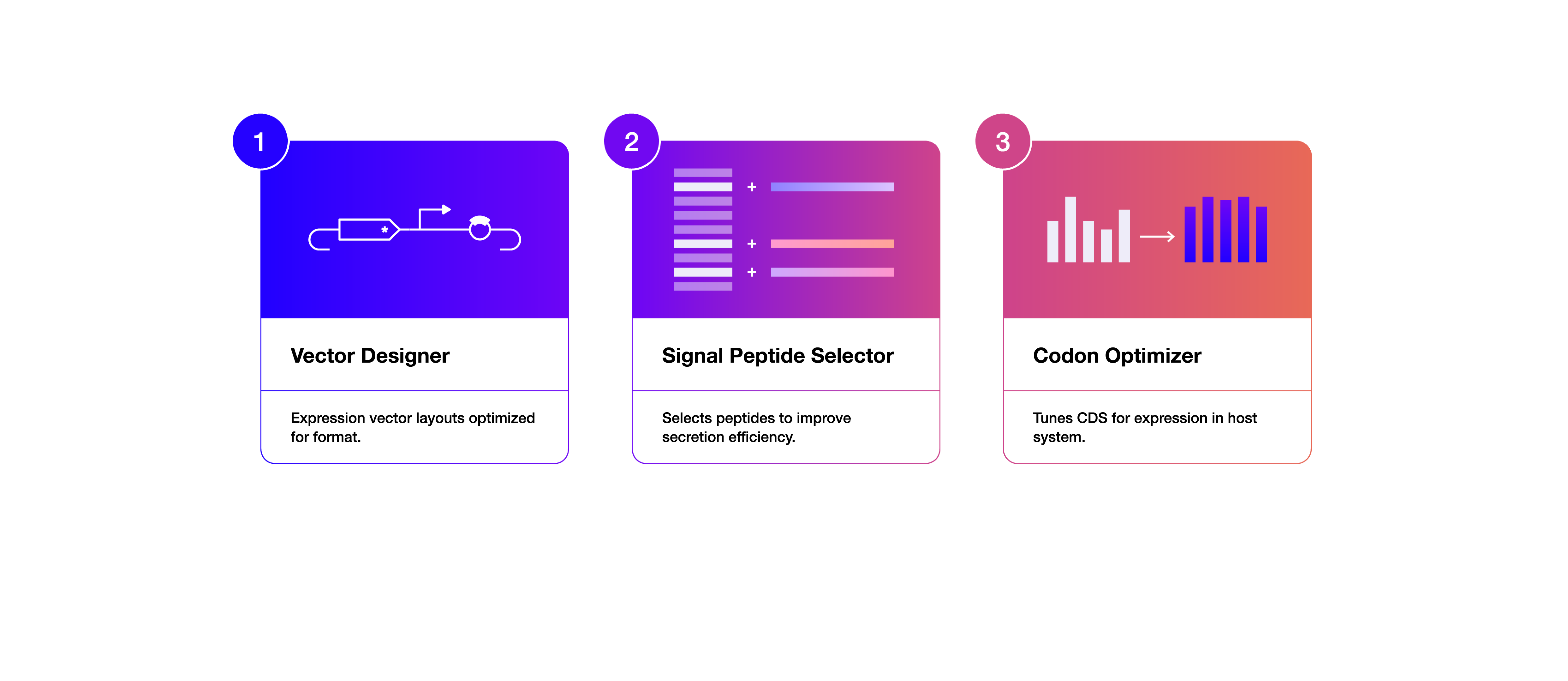
Higher first-pass titers
More material for assays, supporting deeper characterization and stronger data for lead decisions.
Reduced silent attrition
Complex and difficult-to-express molecules survive screening steps, keeping more viable leads in play.
More predictive of CLD
Expression vectors that maintain productivity and stability through cell line development and scale-up.
Beyond the sequence editor
Genetic circuit design
Compose expression vectors from reusable genetic parts, check design rules, and version genetic circuit layouts for reuse.
Batch workflows
Import, optimize, share, and order many sequences at once.
Data warehouse
Kernel keeps your sequences, metadata, and annotations linked and searchable, so everyone on your team works from the same source of truth.
Model-guided sequence design
Molecule-aware codon optimization and expression models guide vector designs that maximize titer, stability, and developability.




Your data is safe and secure
Software as a service is the most efficient way for us to deploy cutting edge computational tools to our customers. We have done a number of things to safeguard your data and information.
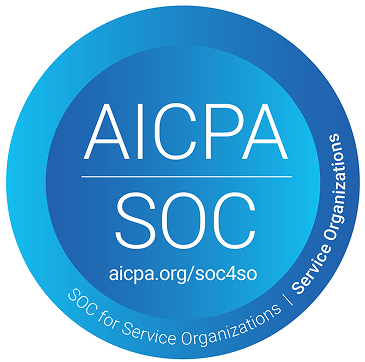
Compliance
Kernel is SOC 2 Type 2 compliant, with validated controls for Security, Confidentiality, and Availability.
Customers can access our Trust Center for reports, documentation, and details on ongoing compliance efforts.
Authentication
We use Auth0, a trusted industry provider, for secure login.
Your passwords are never handled directly by Kernel, and access is enforced at the API layer to ensure only the right people get in.
Privacy & Security
All customer data — from sequences to experimental data — is encrypted, isolated, and kept strictly confidential.
We never share data between customers, and you have fine-grained admin controls to manage access.
Connecting models, design, and biology
Kernel connects predictive models, automated genetic design, and bio-tools to optimize sequences and engineer cells.
Software
Models
Bio-tools
Genetic Compiler
The Genetic Compiler bridges modeling and design, guiding selection of vector layouts and coding sequence optimizations to fit each molecule and host.
Codon Optimization
We built a model trained on CHO genome statistics and further refined it with biophysical predictions to boost titers across antibody formats.
Signal Peptide Selection
Our machine-learning model identifies optimal signal peptides based on predicted cleavage efficiency.
Expression Vectors
Our engineered vector layouts—tailored to modality, molecule, and host—are reusable templates in Kernel. They provide flexible scaffolds for payload insertion and protein expression control.
Hyperactive Transposase
Our next-generation transposase system shows excellent cell recovery curves and productivity gains. Paired with our expression optimization toolkit in Kernel, it shortens the path to functional data.
GMP Host
Our CHO-K1 GS knock-out host is suspension-adapted and GMP-banked under ICH Q5 guidelines. Licensed to partners scaling toward IND, it provides a proven foundation for CLD, process development, and CMC.
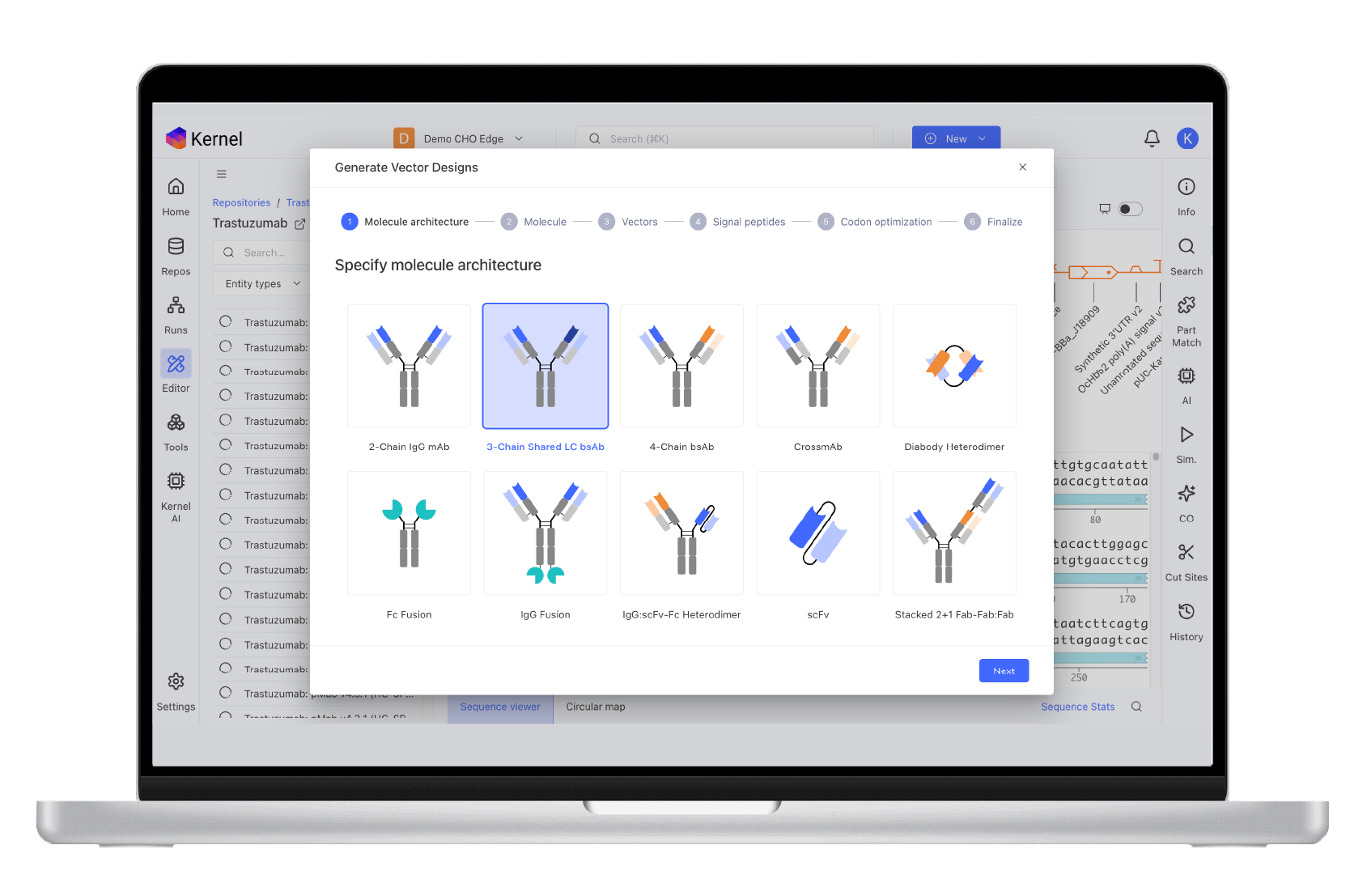


Genetic Compiler
Using our genetic system ontology and the first commercial-grade genetic schematic editor, we've published expression vector layouts as templates in Kernel. Try out the Genetic Compiler to get vector layout recommendations per antibody format.

Codon Optimization
Kernel’s Codon Optimizer uses machine learning trained on CHO codon usage statistics, and further refined with biophysical predictions, to boost titers across antibody formats and hosts.

Single Peptide Optimizer
We created a machine learning model trained on CHO genome statistics and further refined with biophysical predictions to boost titers across antibody formats.

Expression Vectors
Engineered vector layouts -- tailored to modality, molecule, and host -- are licensed for use and available as plasmid templates in Kernel. Composed with the schematic editor and modular genetic parts system, they provide flexible scaffolds for payload insertion and protein expression control.

Hyperactive Transposase
Our next-generation transposase system shows excellent cell recovery curves and productivity gains. Paired with our model-guided expression vector design in Kernel, it shortens the path to functional data -- especially powerful for high-throughput discovery workflows.

GMP Host
CHO-K1 GS knock-out host, suspension-adapted and GMP-banked under ICH Q5 guidelines. Licensed to partners scaling toward IND, it provides a proven foundation for CLD, process development, and CMC.
Let's talk
We’d love to show you what Kernel can do—and learn more about your workflows, data systems, and genetic design challenges.
Tell us about your work, and we’ll connect you with someone from our team.

kernel-support@asimov.com













